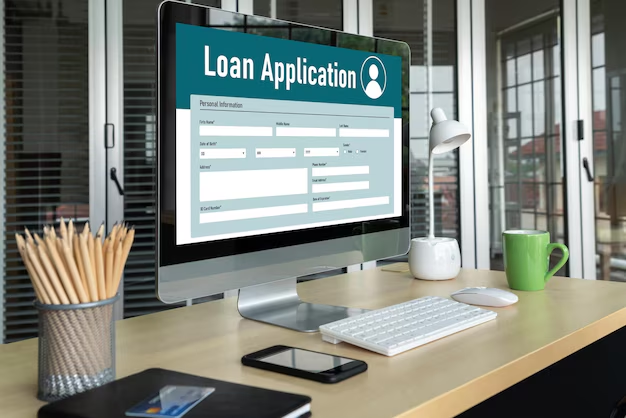Applying for a small business loan can be an essential step in growing your business, but understanding the requirements is crucial for success. Lenders generally look for certain financial, legal, and operational information before granting a loan. Here’s a breakdown of the key requirements when applying for a small business loan:
1. Business Plan

A well-prepared business plan is often the first requirement for any loan application. It shows lenders your business’s goals, strategies, and how you plan to use the loan to achieve those objectives.
- What to Include:
- Executive summary
- Market analysis
- Description of products or services
- Financial projections
- Loan amount and how you will use the funds
2. Credit Score
Lenders will assess the creditworthiness of both the business and the business owner. Your credit score reflects your ability to repay debt.
- What to Consider:
- Personal Credit: For small businesses, lenders typically start by reviewing the personal credit score of the business owner(s).
- Business Credit: Established businesses may also have a business credit score, which reflects the company’s financial behavior.
3. Time in Business
Lenders usually require your business to have been operational for a certain period, typically at least one year, to ensure stability and viability. Newer businesses may find it more challenging to secure loans but may qualify for startup-specific loans or alternative funding.
- What to Consider:
- Lenders prefer businesses that are stable, generating revenue, and have a track record of success.
4. Financial Statements and Tax Returns
Lenders will ask for comprehensive financial records to assess your business’s ability to repay the loan. This includes:
- What to Provide:
- Profit and loss (P&L) statements
- Balance sheets
- Cash flow statements
- Tax returns (usually for the past 2-3 years)
5. Collateral
Some loan types, especially larger loans, may require collateral to secure the loan. Collateral can be business assets such as equipment, real estate, or inventory, which the lender can seize if you fail to repay.
- What to Consider:
- Not all loans require collateral, but offering assets as security can improve your chances of approval, especially for high-risk borrowers.
6. Debt-to-Income (DTI) Ratio
Your debt-to-income ratio is an important factor in determining how much debt you can handle. Lenders will want to ensure that your business has enough cash flow to repay the loan without overextending your finances.
- What to Consider:
- A DTI ratio below 40-45% is typically favorable, but requirements may vary by lender.
7. Business Ownership and Legal Structure
The legal structure of your business (sole proprietorship, partnership, LLC, corporation) affects the way the loan is applied and the paperwork required.
- What to Provide:
- Articles of incorporation or operating agreement (for LLCs and corporations)
- Business license or permits
- Employer Identification Number (EIN)
- Partnership or shareholder agreements, if applicable
8. Cash Flow and Revenue
Lenders will examine your business’s cash flow to determine your ability to repay the loan. They will want to see consistent revenue and a healthy cash flow.
- What to Provide:
- Bank statements (usually for the last 3-6 months)
- Evidence of consistent and growing revenue, if possible
9. Loan Purpose
Lenders will ask for a clear explanation of why you need the loan and how it will help your business. A well-defined purpose can demonstrate to the lender that you have a solid plan in place.
- What to Consider:
- Whether the loan is for working capital, equipment purchase, expansion, or another purpose. A clear explanation of how the loan will benefit your business can strengthen your application.
10. Personal Guarantee
Lenders may require a personal guarantee from the business owner or co-signers, especially for small or new businesses. This means that if the business fails to repay the loan, the individual(s) will be responsible for repaying the debt.
- What to Consider:
- Be prepared to assume personal liability in case the business defaults on the loan.
Conclusion
Securing a small business loan requires meeting various lender requirements, including demonstrating financial stability, having a clear business plan, and providing necessary documentation. By preparing these materials in advance and ensuring that your financial health is in order, you can improve your chances of getting approved for the loan that will help your business grow.
FAQs
1. What credit score is needed for a small business loan?
Generally, a personal credit score of 650 or higher is preferred for most small business loans. However, requirements vary depending on the lender and type of loan.
2. Can I get a business loan with no collateral?
Yes, some loans, like SBA loans or unsecured business loans, may not require collateral, but they may have stricter requirements and higher interest rates.
3. How long does it take to get approved for a small business loan?
Loan approval times vary, but it typically takes anywhere from a few days to several weeks, depending on the lender and type of loan.
4. What types of loans are available for small businesses?
Small businesses can access various loan types, including SBA loans, term loans, lines of credit, equipment financing, and merchant cash advances.
5. Can I apply for a small business loan if I’m a startup?
Yes, but it may be more challenging. Startups may qualify for specific loans like SBA microloans or funding from alternative lenders.
6. Do I need a business plan for a small business loan?
Yes, a business plan is often required to outline your business’s objectives, strategies, and how the loan will be used to grow the business.
7. Can I apply for a loan if my business has bad credit?
It may be more difficult, but some lenders offer loans to businesses with bad credit. You might consider alternative lenders, who may have more lenient requirements.

